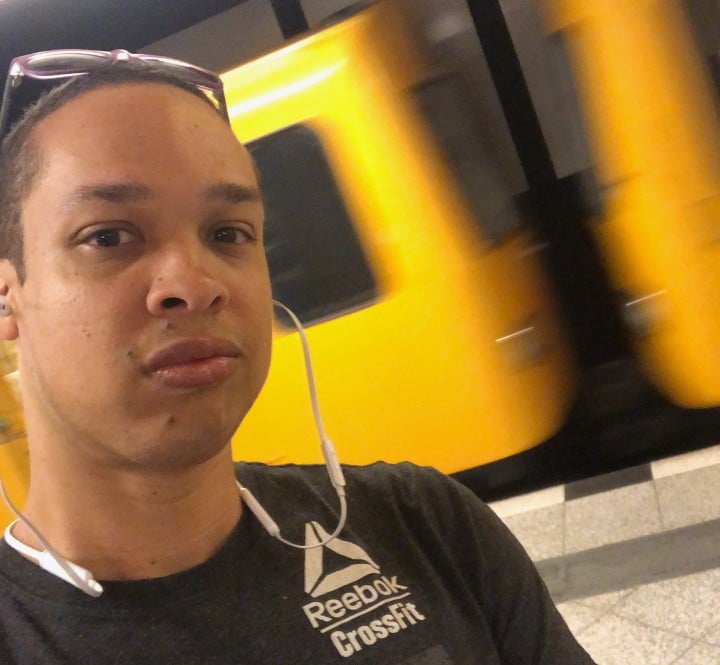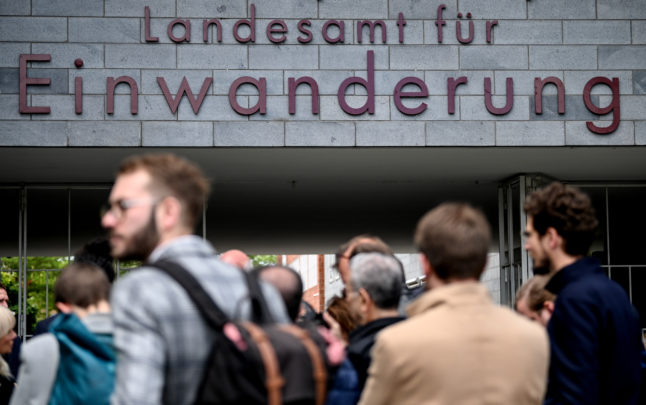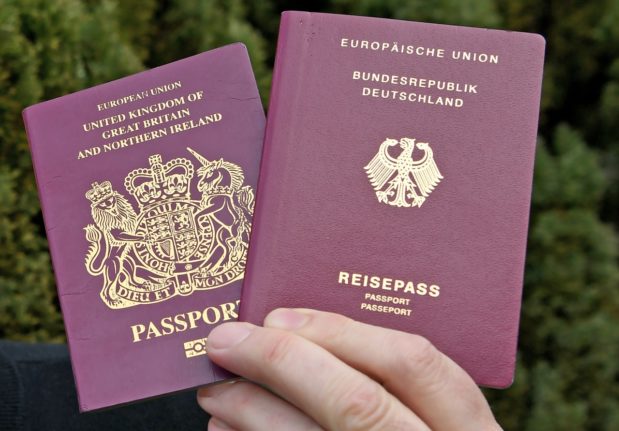When Christopher Payne came to Erfurt, Thuringia, for work in 2013 from the UK he had no idea he’d end up wanting to make Germany his home.
The 35-year-old, who’s originally from Barbados and works in aerospace engineering, told The Local: “Originally I came to Germany on a temporary transfer to fill a specific role in my company which has offices in both the UK and Germany. The transfer to Erfurt was intended to be for one or two years, but was extended to a four-year stint.”
READ ALSO: ‘I never thought I’d settle in Germany’: The expats who stayed years longer than planned
When the transfer ended, he had become so impressed with Germany and the German way of life that, rather than return to the UK, he decided to explore other opportunities within the local branch of his firm.
“Through this avenue I ended up moving to Berlin,” he said.
Like many other non-EU nationals, Payne applied for a Blue Card. After around 15 months he decided to apply for permanent residency, citing Germany’s quality of life and work-life-balance as the major draws for settling here long-term.
“I wanted to settle down in Berlin and decided to make Germany my home,” said Payne.
Payne got everything ready – such as his B1 German language certificate – to apply for permanent residency at the Ausländerberhörde or immigration office in August 2019.
“It (the process) was meant to take eight weeks,” he said. “I waited about 10 weeks – sent them an email – heard nothing. Waited a couple more weeks – heard nothing. Tried to get through on the phone, I printed out a letter and posted it… and I heard nothing.”
At this point, the Covid pandemic was coming into view, leaving many people worried about the future.
Payne said it was at this point that he got in touch with a lawyer to ask them to look into his application. The lawyer requested the file from authorities in April 2020, and then told Payne that it had been forgotten about.
“It was only because the lawyer requested to see it that they sent it to the correct department to process it,” said Payne. The Ausländerbehörde then said that, due to Covid, they were unable to allow Payne to come in to the office.

“My lawyer wrote a harsh letter saying that if they don’t do something ‘we’ll have to sue you guys’,” said Payne. “It was only at that point they said, you can come and get your permanent residency.”
READ ALSO: ‘Lack of transparency’: What it’s like to apply for permanent residency in Germany
Engaging with a lawyer cost Payne around €1,000. “It was a fiasco,” he said, referring to the way that Berlin handled his case.
Sabine Beikler, spokesperson for the Berlin Senate for Interior, Digitalisation and Sport told The Local that Payne’s application for a residence permit submitted in August 2019 “was unfortunately not initially answered, to the regret of the State Office for Immigration (LEA)”.
“This omission was noticed with the request for file inspection by the lawyer in April 2020,” said Beikler. “Of course, the processing of the case would have been started without the involvement of a lawyer if the error had been noticed otherwise.”
‘Barriers’
Despite the turbulent experience of gaining permanent residency, Payne was determined to reach his long-term goal of getting German citizenship.
He became eligible to apply to become German in March 2021 after reaching eight years of residency in the country.
Payne said he was surprised when he tried to get the initial naturalisation appointment a few months before in January 2021 at the district office in Steglitz where he lives – and found the first available appointment was in August.
Nevertheless he took that slot, and in the three months’ following that appointment, he gathered all of the documents required, from birth certificate to language and residency test requirements. The completed application was submitted in November 2021.
Payne said he was told that the citizenship application takes around 20 months to process after authorities receive his application.
“In February 2022 I got the letter saying they were starting to process my application,” he said. “I thought it must be pretty quick and maybe they’re doing it way faster.”
READ ALSO: EXPLAINED: How I got German citizenship – and how you can too
However, after speaking to others applying for citizenship in Berlin, he realised that the 20 month wait usually starts from the receipt of the application.
For Payne, the timeline feels painfully slow.
“It has been a very disheartening experience,” he said. “I’m proud to live here in Germany and contribute to the country and society, and am willing to give up citizenship in my country of birth to do so. However, it feels as if I am in limbo with so much bureaucracy and so many barriers in the way.”
There are also different waiting times depending on the district office where applicants live. At present, citizenship applications are handled at a district level, meaning areas with a higher concentration of expats are likely to have longer waiting times.
Sabine Beikler, spokesperson for the Berlin Senate for Interior, Digitalisation and Sport, said that Payne’s “regrettable” case is “not representative of the duration of naturalisation procedures in the state of Berlin, even if a high volume of applications can lead to longer processing times in some cases”.
Beikler said the city of Berlin plans to centralise the system to make it more efficient.
“In order to significantly shorten the processing times of naturalisation procedures in the state of Berlin, the Senate is planning to centralise responsibility for naturalisations and to provide the future central authority with adequate personnel and technical equipment,” she said.
READ ALSO: EXPLAINED: How German citizenship differs from permanent residency



 Please whitelist us to continue reading.
Please whitelist us to continue reading.
I had a more positive experience. I applied for German citizenship at the beginning of February 2020, and was able to collect my certificate just a month later. I live in Baden-Württemberg, Waldshut-Tiengen area. I was actually surprised at how fast it went…
I have had a similar experience like Payne, where I applied in November 2021 and just in August I received my citizenship. It is also true that the Ausländerbehörde doesn’t entertain to any emails, or telephone calls. If they do, then its a harsh message of not disturbing them inspite of the fact that we do not call every now and then, but rather just after the stipulated time (mentioned) has passed. I live in Mannheim, and this is expected from big cities as the number of applicants are very high. However, I do notice that that people who apply from smaller towns or cities- the processing is way-faster.